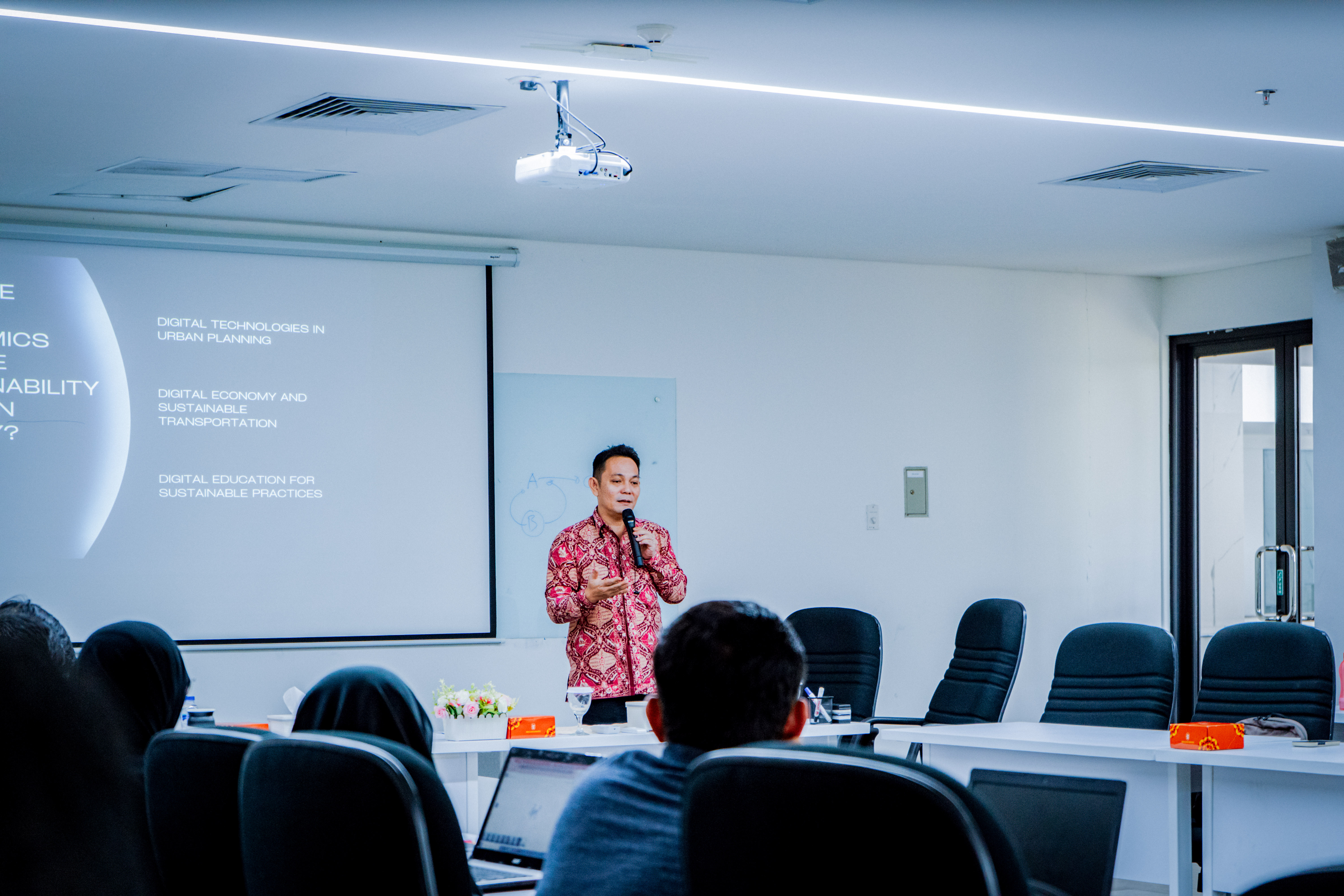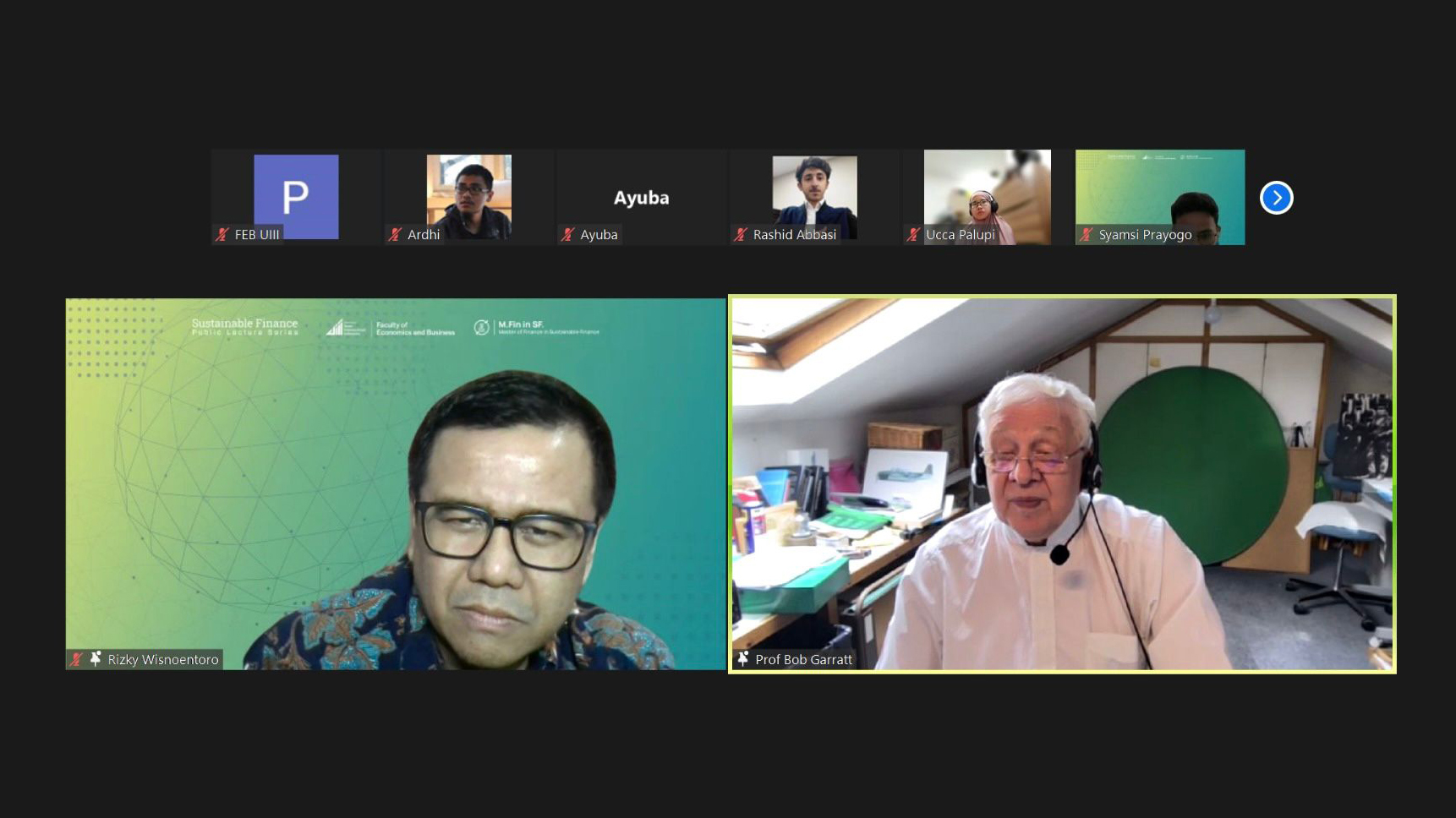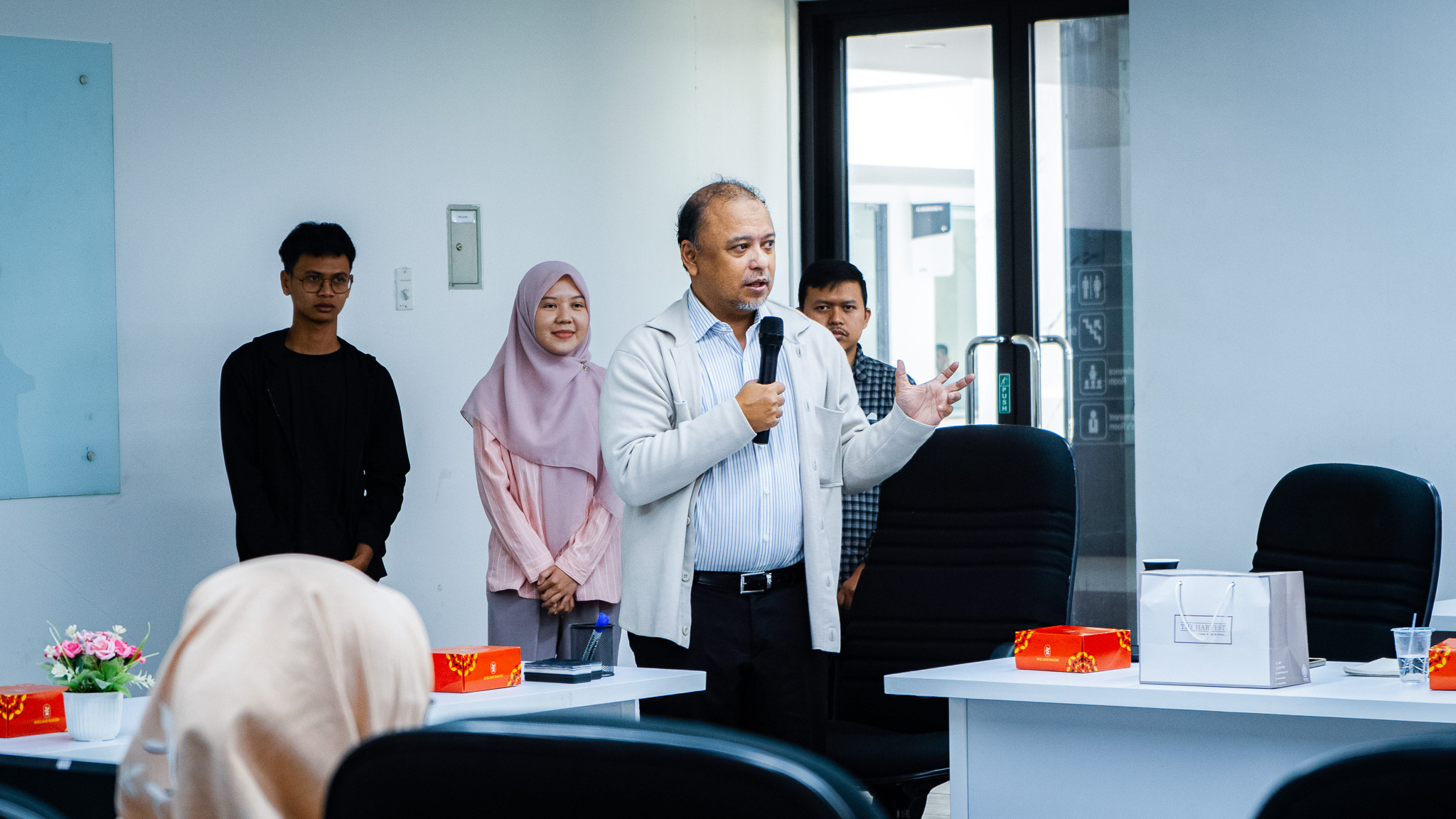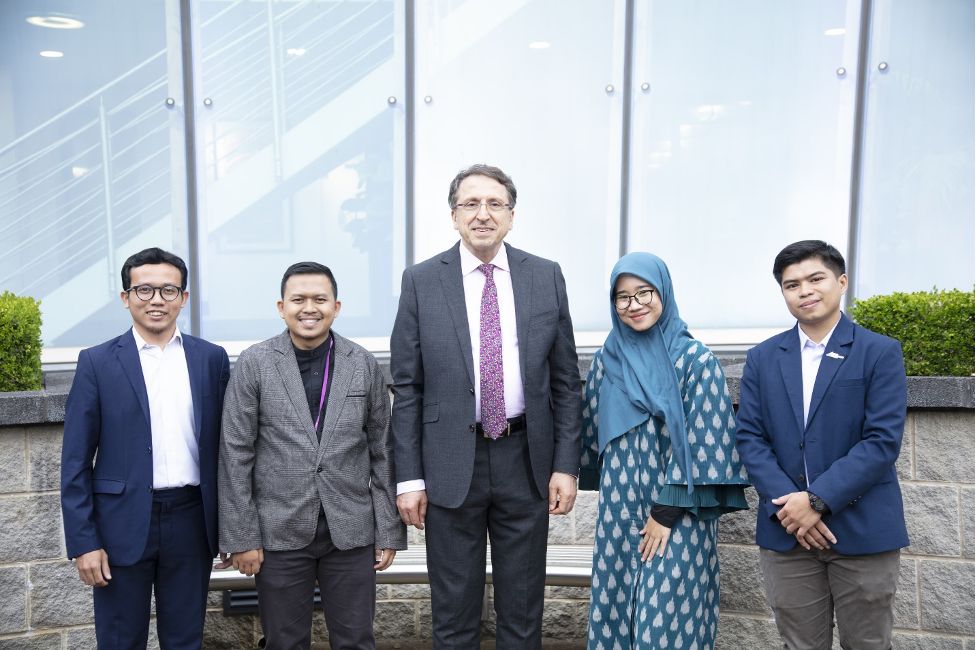‘SF Updates’ Discusses How Digital Economics Improve Sustainability in Urban Society
January 18, 2024 Contributor: Rashid Shabir Abbasi | Editor: Supriyono
UIII.AC.ID, DEPOK - The third episode of ‘SF Updates’ held on January 4, 2024, by the UIII’s Master of Sustainable Finance Department featured Ir. Ivan Cahya Permana, the Acting President Director and Director of Commerce and Operations at PT Jakarta Infrastruktur Propertindo, delving into the transformative potential of digital economics in enhancing sustainability within urban societies.
By inviting a practitioner from the public sector property, infrastructure, utility, and information technology company, the event provided a comprehensive look at how the integration of digital technologies can contribute to a more efficient and eco-friendly urban environment.
Digital technologies play a pivotal role in building smart cities that enhance the performance and well-being of their residents. Ir. Permana emphasized how incorporating technology into basic city utilities, as exemplified by the Integrated Utility Network Facilities (SJUT), can significantly improve efficiency in urban planning and development.
"The digital economy is all about using digital technologies for business and daily life," Ir. Permana remarked. He emphasized the significance of these technologies in enhancing efficiency and environmental responsibility within urban environments.
One of the primary benefits highlighted by Ir. Permana was the increased efficiency enabled by digital technologies. Through the use of smart infrastructure and innovative solutions, cities can streamline their operations, ultimately reducing costs and resource consumption.
Ir. Permana also outlined the impact of digital economics on sustainable transportation. The integration of online marketplaces, local business support, and digital platforms for sustainable choices can contribute to reduced packaging waste and support ethical shopping practices. Additionally, ride-sharing and carpooling apps, along with advancements in Electric Vehicles (EVs) and charging infrastructure, were discussed as means to alleviate traffic congestion and lower carbon emissions.
A key focus of the presentation was on the role of digital education in promoting sustainable practices. Online learning platforms were highlighted as effective tools for spreading awareness and fostering a sustainable lifestyle. Digital literacy, particularly in understanding environmental impacts and making responsible choices, was emphasized as a crucial component for sustainable decision-making.
To illustrate the practical implementation of these concepts, Ir. Permana presented case studies such as SJUT, showcasing smart infrastructure; JakLingko, emphasizing smart mobility; and JAKI, illustrating citizen engagement through technology. These examples serve as real-world demonstrations of how digital economics can be harnessed for the betterment of urban societies.
Ir. Ivan Cahya Permana's presentation at UIII underscored the transformative potential of digital economics in creating sustainable urban environments. As cities continue to grapple with the challenges of rapid urbanization, embracing digital technologies emerges as a promising avenue for building resilient, efficient, and eco-friendly urban landscapes. The integration of these technologies not only optimizes existing systems but also lays the foundation for a more sustainable and responsible future.
- UIII Extends Application Deadline for 2025 International Admissions
- What Does Eid al-Fitr Mean for the UIII Academic Community?
- UIII PhD Scholar Ararat Kostanian Delivers Lecture at Armenia's Yerevan State University
- Swedish Ambassador to Indonesia Applauds UIII’s Vision, Explores Future Collaboration
- Depok Mayor Supports UIII as the Green Lung of Depok and Beyond
- Depok Mayor Pledges to Build Performance Hall at UIII
- New Parking Facility Launched, Part of UIII-Sentra Medika Hospital Partnership
- Yogyakarta’s UII Won 1st FisFastFest’s Clash of Campuses
- Vice Minister of Religious Affairs Praises UIII as a Global Hub for Islamic Education
- Hurray!! UIII Wins Football Championship


